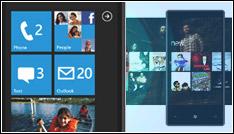Microsoft Points To Positive Windows Phone 7 Numbers

Microsoft is claiming strong developer support for Windows Phone 7, despite ongoing sales concerns
Microsoft continues to remain coy about actual consumer sales numbers of Windows Phone 7, but the software giant used a new blog post to plug its benefits for third-party developers.
Microsoft’s MIX11 conference, due to kick off 12 April in Las Vegas, will assemble a broad range of developers and designers to discuss, among other things, the future of Windows Phone as a viable platform for apps and services.
The 30 March posting on The Windows Phone Developer Blog reads like a preview of the arguments Microsoft executives will likely make onstage during the conference.
Developer Interest
Among them: that Windows Phone Developer Tools have proven enormously popular over the past year, having been downloaded some 1.5 million times. That the Windows Phone developer community boasts 36,000 members, and that the Windows Phone 7 ecosystem contains around 11,500 apps.
Based on those numbers, a back-of-the-envelope calculation suggests one app published for approximately every 3.13 developers who signed onto AppHub. It also suggests that, out of total Windows Phone Developer Tools downloads, less than 1 percent translated into a published app.
 “We recognise the importance of getting great apps on our platform and not artificially inflating the number of actual apps available to [customers] by listing ‘wallpapers’ as a category, or perhaps allowing competitor’s apps to run on the platform to increase tonnage,” Brandon Watson, Microsoft’s director of developer experience for Windows Phone 7, wrote in the posting. “We also don’t believe in the practice of counting ‘lite’ apps as unique quality content. In reality they only exist because developers can’t have a Trial API and must therefore do extra work.”
“We recognise the importance of getting great apps on our platform and not artificially inflating the number of actual apps available to [customers] by listing ‘wallpapers’ as a category, or perhaps allowing competitor’s apps to run on the platform to increase tonnage,” Brandon Watson, Microsoft’s director of developer experience for Windows Phone 7, wrote in the posting. “We also don’t believe in the practice of counting ‘lite’ apps as unique quality content. In reality they only exist because developers can’t have a Trial API and must therefore do extra work.”
Despite the posting’s advocacy of Windows Phone 7 as a platform, its title (“The Windows Phone 7 Numbers That Matter”) and much of its rhetoric hint at an enormous elephant in the room actual consumer sales numbers.
“You might think that the primary driver is number of handsets in market,” Watson wrote at another point. “Based on the conversations we are having with some of our developers, many are telling us that they are seeing more revenue on our platform than competing platforms, despite the fact that we cannot yet match the sheer number of handsets being sold.”
Sales Question
Microsoft confirmed at the end of January that some 2 million Windows Phone 7 units had been sold by manufacturers to retailers, but the exact number reaching consumers’ hands remains unclear.
“Our numbers are similar to the performance of other first-generation mobile platforms,” Achim Berg, Microsoft’s vice president of business and marketing for Windows Phones, mentioned in a Q&A posted 21 December on the company’s corporate website. “It takes time to educate partners and consumers on what you’re delivering, and drive awareness and interest in your new offering. We’re comfortable with where we are, and we are here for the long run.”
In the interim, however, the company has encountered speed-bumps related to software updates for the platform, which in turn has sparked some anger among early adopters. In the United States, two Windows Phone 7 devices – the Dell Venue Pro and HTC HD7 – are currently in the delivery stage for the “NoDo” update, which includes cut-and-paste functionality; the other three remain in the “Testing” stage, which is apparently controlled by the carriers.
Longer-term, one analyst believes that Windows Phone 7, thanks to Microsoft’s recent alliance with Nokia, will surpass both Research In Motion’s BlackBerry and Apple’s iOS to become the second-ranked smartphone operating system in the world by 2015, lagging behind only Google Android.
“Up until the launch of Windows Phone 7 last year, Microsoft has steadily lost market share while other operating systems have brought forth new and appealing experiences,” Ramon Llamas, an analyst with IDC, wrote in a 29 March report. “The new alliance brings together Nokia’s hardware capabilities and Windows Phone’s differentiated platform.”
Should that come to pass, it would represent a substantial reversal from Microsoft’s current fortunes in the mobile space, where it trails rivals with 8 percent of the market.